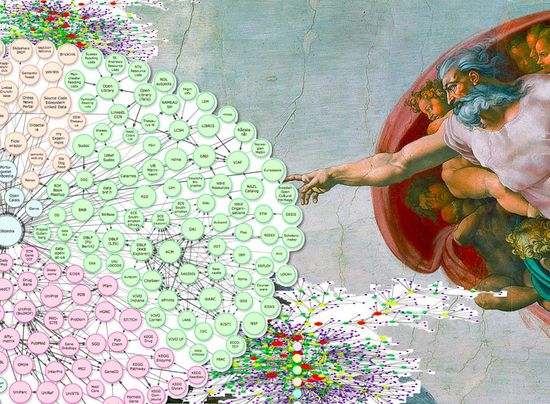
The knowledge contained in the World Wide Web is available in interlinked documents written in natural language. To make use of this knowledge, technologies such as natural language processing, information retrieval, data and knowledge mining must be applied. Semantic Web technologies follow an alternative approach by complementing web documents with explicit semantics based on formal knowledge representations, such as e.g. ontologies. In this MOOC, you will learn the fundamentals of Semantic Web technologies and how they are applied for knowledge representation in the World Wide Web. You will learn how to represent knowledge with ontologies and how to access and benefit from semantic data on the Web. Furthermore, you will also learn how to make use of Linked Data and the Web of Data, currently the most popular applications based on Semantic Web technologies.
Language: English
العربية, English, 中文
Course information
The web has become an object of our daily life and the amount of information in the web is ever growing. Besides plain texts, especially multimedia information such as graphics, audio or video have become a predominant part of the web's information traffic. But, how can we find useful information within this huge information space? How can we make use of the knowledge contained in those web documents? Traditional search engines for example will reach the limits of their power, when it comes to understanding information content. The Semantic Web is an extension of the traditional web in the sense that information in the form of natural language text in the web will be complemented by its explicit semantics based on a formal knowledge representation. Thus, the meaning of information expressed in natural language can be accessed in an automated way and interpreted correctly, i.e. it can be ‘understood’ by machines.
Semantic Web technologies enable the explicit representation of knowledge and its further processing to deduce new knowledge from implicitly hidden knowledge. Thus, information access and information search will be more precise and more complete compared to today's traditional information retrieval technology. Previously heterogeneous data can be mapped and combined based on common knowledge representation and schemata easily extended in a dynamic way.
In this MOOC, you will learn the fundamentals of Semantic Web technologies and how they are applied for knowledge representation in the World Wide Web. You will learn how to represent knowledge with ontologies and how to access and benefit from semantic data on the Web. Furthermore, you will also learn how to make use of Linked Data and the Web of Data, currently the most popular applications based on Semantic Web technologies.
Join openHPI's official Twitter Feed: @openHPI
Requirements for this course:
a basic knowledge of the foundations of mathematical logics, i.e. propositional logics and first order logics
a basic understanding of web technologies, such as URL, http, HTML, and XML-based technologies
a basic knowledge of database technology such as, e.g. relational databases and SQL query language
Course contents
Week 1:
Knowledge Engineering and the Web of DataWeek 2:
RDF Based Knowledge EngineeringWeek 3:
Ontologies and LogicWeek 4:
OWL, Rules, and ReasoningWeek 5:
Ontological EngineeringFinal Examination
Week 6:
Knowledge Engineering
Reactivate this course
You can access all graded assignments and earn a Record of Achievement with the course reactivation option. Learn more or
Enroll me for this course
Learners
Certificate Requirements
- Gain a Certificate by booking it and gaining a Record of Achievement. Find out more in the certificate guidelines.
- Gain a Record of Achievement by earning at least 50% of the maximum number of points from all graded assignments.
- Gain a Confirmation of Participation by completing at least 50% of the course material.
Find out more in the certificate guidelines.
This course is offered by

Harald Sack is Professor for Information Services Engineering at FIZ Karlsruhe - Leibniz Institute for Information Infrastructure and Karlsruhe Institute of Technology. After graduating in computer science at the University of the Federal Forces Munich Campus in 1990, he worked as systems/network engineer and project manager in the signal intelligence corps of the German federal forces from 1990–1997. In 1997 he became an associated member of the graduate program ‘mathematical optimization’ at the University of Trier, where he obtained a PhD in Computer Science in 2002. From 2002–2009 worked as PostDoc at the Friedrich-Schiller-University in Jena. From 2009 - 2016 he worked as Senior Researcher and head of the research group 'semantic technologies’ at the Hasso Plattner-Institute for IT-Systems Engineering (HPI) at the University of Potsdam.
His areas of research include semantic web technologies, knowledge representations and ontological engineering, multimedia analysis & retrieval, machine learning and semantic enabled retrieval.
He is charter member and general secretary of the 2008 founded German IPv6 Council. He has served as Senior PC member or PC member of numerous international conferences and workshops related to semantic technologies as well as program chair, scientific chair or general chair.
Harald Sack has published more than 130 papers in international journals and conferences including three standard textbooks on networking technologies. He is co-founder of yovisto GmbH (www.yovisto.com).